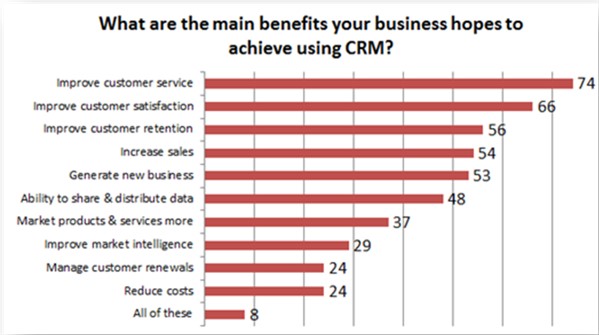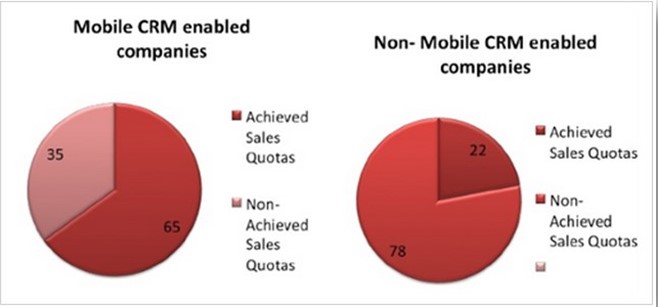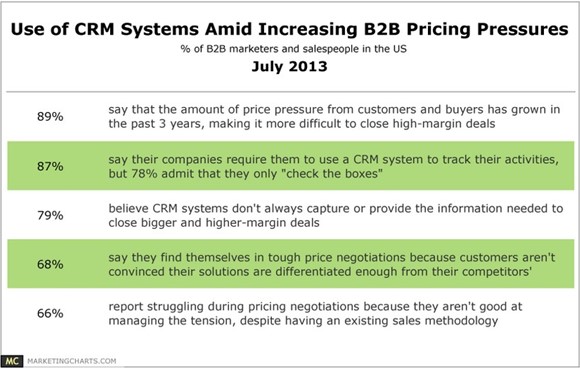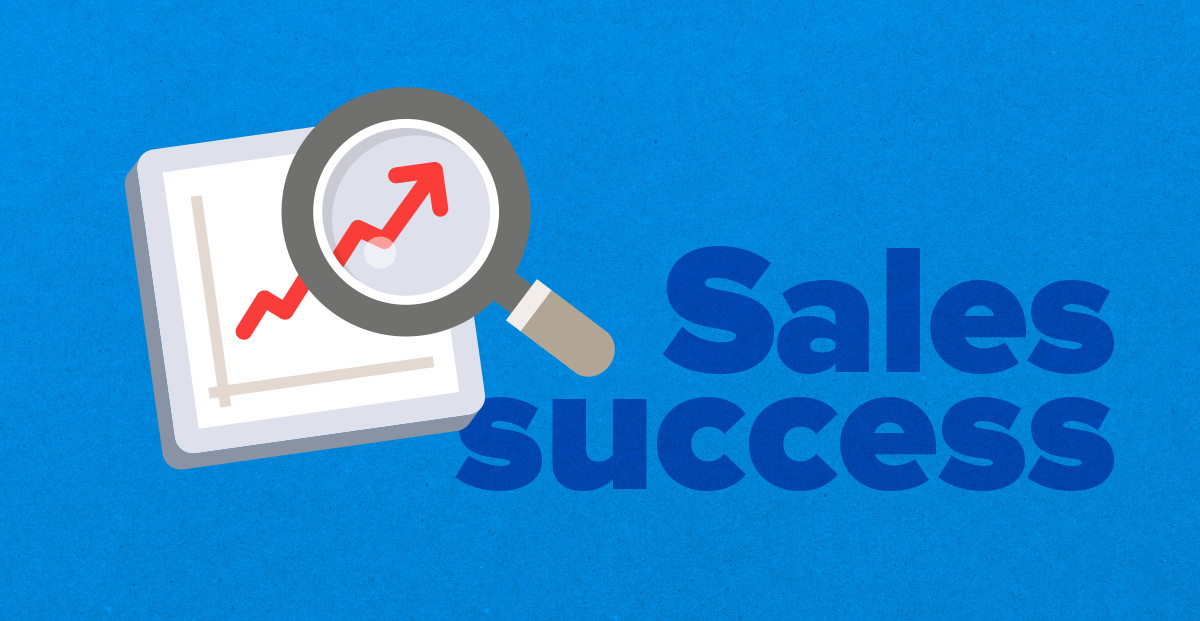Often, sales managers can easily see the benefits of adopting a customer relationship management (CRM) system. They believe CRM provides centralized storage of sales data and provides them in an easy-to-understand format to monitor sales processes, monitor employee performance, and optimize sales.
But what about the average expression of B2B sales?
Often, not everyone is initially “happy-lucky” in CRM.
Salespeople often regard CRM as another tool. Because more work is another way that bosses track their work.
This is inconvenient because it takes extra time to enter data into the CRM application. The sales representative thinks that this cannot complete the sales.
But this blog is not about why the sales team often does not see the benefits of CRM. How CRM improves the lives of salespeople, and more importantly, why salespeople need CRM.
Do you know why?
Good sales tools have been underestimated.
CRM helps promote sales. Tech News World published the following research report early in 2012. This report shows that more than half (54%) of companies hope to increase their sales through CRM.

But is this happening now?
The statistics were “Yes” because mobile CRM usage increased by 87% in 2014. This is particularly attractive to salespeople on the go.
On the demand side, what is more important than a sales representative achieving a goal?
According to Tas Group, two-thirds (67%) of salespeople lost sales quota.
At the same time, Innoppl Technologies found that 65% of salespeople using mobile CRM achieved sales quotas, and 78% of salespeople not using CRM did not achieve their goals.

Despite all the “experts”, not all salespeople are excited about the idea of introducing CRM in their daily lives.
As you can see in the picture below, 87% of the salespeople who misinterpreted CRM values thought that managers would use day-to-day monitoring of their activities. This fear allowed me to “check the box” of the system without seeing the true value of the tool.

The benefits of CRM for sales teams cannot be immediately identified, but the rules of the game change when implemented properly.
These are sales people who need more CRM adoption, so in this blog post we’ll show you the main reasons why CRM can help you achieve your sales goals faster and improve your results.
So why do salespeople need CRM?
Do not worry too much about simplifying the biggest challenge for salespeople. 1) how to identify and track sales leads, and 2) how to prioritize sales activities.
However, CRM can address these key issues as well as, in fact, address other key issues.
1. Enjoy safe storage space.
CRM helps salespeople centrally securely store contacts, sales opportunities, activities, and planned plans in one place and access databases from multiple locations without interruption. Do not lose data.
2. Planning and time management like professional
CRM helps your salespeople prioritize their work so that they can optimize their everyday working hours and communicate important prospects in a timely manner without having to ignore them. With CRM, salespeople can spend more time with their customers, closing more deals and strengthening their customer base.
3. Activity Report? – OK!
With CRM, salespeople can easily prepare reports for management weekly or monthly. This process is automated and transparent to signal other ongoing sales with just a few clicks.
4. Stop surfing and start your location.
CRM helps salespeople sort data and identify important opportunities through standards-based choices. This will prevent various documents from being cut and pasted for hours or browsing through unordered data lists.
5. Keeping up-to-date development information
CRM provides shared schedules, document templates, and e-mail integration to bring all team members together and keep everyone up-to-date. By sharing your sales model and process, salespeople can see the most effective ways. CRM also improves communication between sales staff and sales management.
6. New sales appear in time.
CRM tracks all communications with customers, helping them to pinpoint when customers need to be contacted (such as product replacement, contract renewal, or the sale of new products or services). All of this increases the probability of completion of sales.
7. Streamline sales behavior
CRM simplifies the entire sales cycle to reduce sales on sales channels and helps all team members reach their goals more quickly. Order processing and prepared quotes are automated in CRM, allowing sales teams to reduce production costs and increase sales revenue.
8. Understand what customers really want.
All customer-related data is stored in CRM so salespeople can analyze customer needs and predict problems in a timely manner. All of this increases customer satisfaction, loyalty, and profitability.
9. Reduced administrative tasks
CRM reduces or eliminates time-consuming repetitive tasks and excludes sales teams from most administrative tasks, but yields are low. CRM stores product and price details, triggers event reminders, and directs salespeople through sales channels.
10. Save money.
The CRM system is not inexpensive, but it actually helps to save money. For salespeople, CRM helps reduce errors (such as orders or quotations). The effort and cost of fixing these errors can be much higher. Finally, because new information can be safely stored in the system, it saves dirty money and often causes the sticky notes to disappear.
Conclusion
That is, salesforce and customer relationship management is not an immediate “heavenly match,” but the more time you spend together, the more attractive.
Correct use and use of CRM can help improve sales team performance and make salespeople stand out in four areas that are important to them.
Better search, sort, and audience identification;
The system tracks sales opportunities in a timely manner.
Prioritize and streamline follow-up activities
Faster target range.
However, improvements brought by CRM are not the efforts, understanding, and decisions of salespeople. Sales representatives must agree that updating CRM is important to success.
The sales team must also synchronize activities and build on best practices. This allows you to share information more effectively and use CRM more efficiently.
More importantly, the sales team must accept the idea that by registering all activities and following existing sales practices, they are more likely to achieve their sales goals. It’s also important to realize that sales representatives can benefit from updating and sharing up-to-date information about potential customers.
Finally, CRM can increase the mobility of salespeople, databases, and all work-related activities from multiple devices and locations.
So, what kind of experience do you need to get your sales team involved in CRM? What other reasons can explain why a salesperson needs CRM? Share your comments in the comments section below.
If you want to learn more about how SalesTrendz can help your sales team, please sign up for a free demo.




